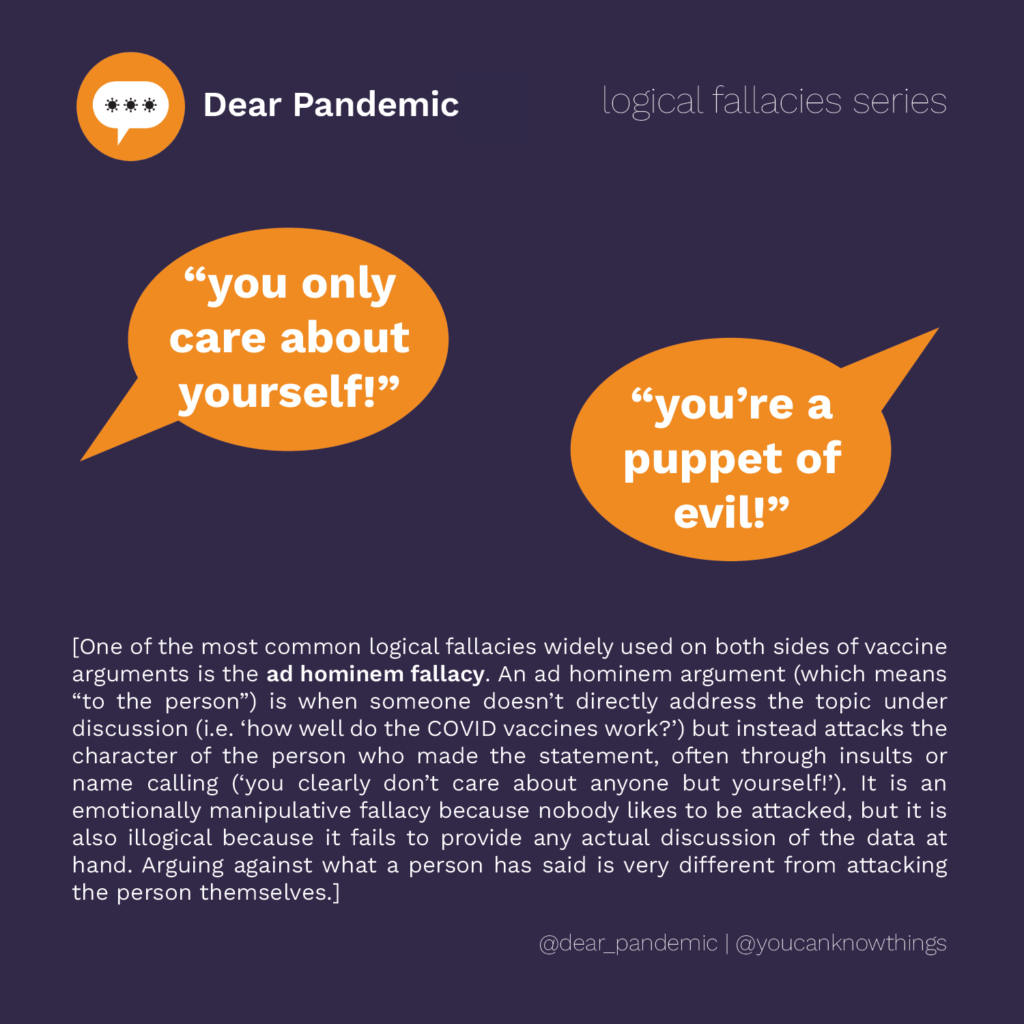At Dear Pandemic, we want to dish out science facts AND equip our readers with tools to make sense of data and science themselves.
This is post is part of an ongoing series by Dr. Kristen Panthagani of You Can Know Things, in which she dissects common logical fallacies that have led people astray during the pandemic.
⚠️The Ad Hominem Fallacy⚠️
“You only care about yourself!”
One of the most common logical fallacies widely used on both sides of vaccine arguments is the ad hominem abusive fallacy. An ad hominem argument (which means “to the person”) is when someone doesn’t directly address the topic under discussion (i.e. ‘how well do the COVID vaccines work?’) but instead criticizes the person who made the statement.
The abusive form of this fallacy takes the form of a personal attack or insults (‘you clearly don’t care about anyone but yourself!’) The switch from reasonable debate to ad hominem fallacy occurs when a person stops attacking the argument and starts attacking the arguer. It is fair and valid to disagree in an argument and state your reasons for doing so. However, when this switches over to personally attacking the character, appearance, or motivations of the person you are arguing with, not only is that mean, but it is also illogical. For example, name-calling doesn’t tell anyone anything meaningful about vaccine efficacy, and is not a logically valid rebuttal to a statement about vaccine efficacy. Furthermore, because it’s hurtful, it often leads to people becoming defensive and less willing to have nuanced discussions, which isn’t helpful.
A note on logical fallacies:
Logical fallacies are common patterns of reasoning that seem true on the surface but have one or more critical flaws. At their root, many are oversimplifications–like a cognitive shortcut.
They are appealing because they make something complex, like vaccine safety or the efficacy of masks, into something simple and easy to understand. However, this oversimplification often leaves out important details, leading to the wrong conclusions.
Logical fallacies are common and used by people arguing both for and against nearly every pandemic topic. They are NOT a sign of stupidity or lack of intelligence: they have tripped up nearly everyone at some point. And just because someone uses a fallacy in their argument doesn’t automatically mean they’re wrong — (that’s the fallacy fallacy!). It simply means they haven’t provided adequate evidence supporting their argument, but that evidence may in fact exist. It’s useful to recognize logical fallacies in our own thinking so we can make more accurate conclusions about the world around us.

More in this series:
The Appeal to Authority Fallacy


